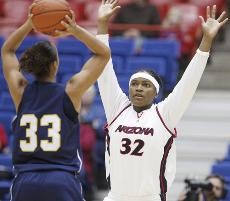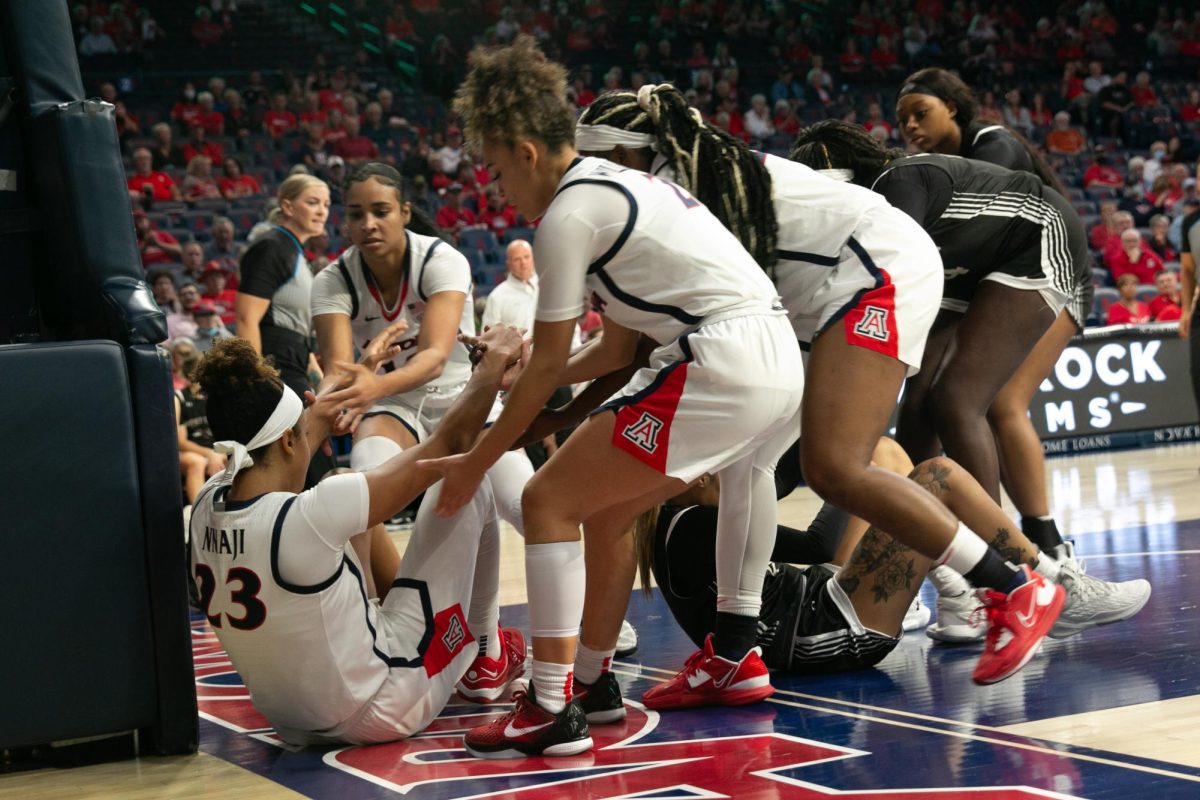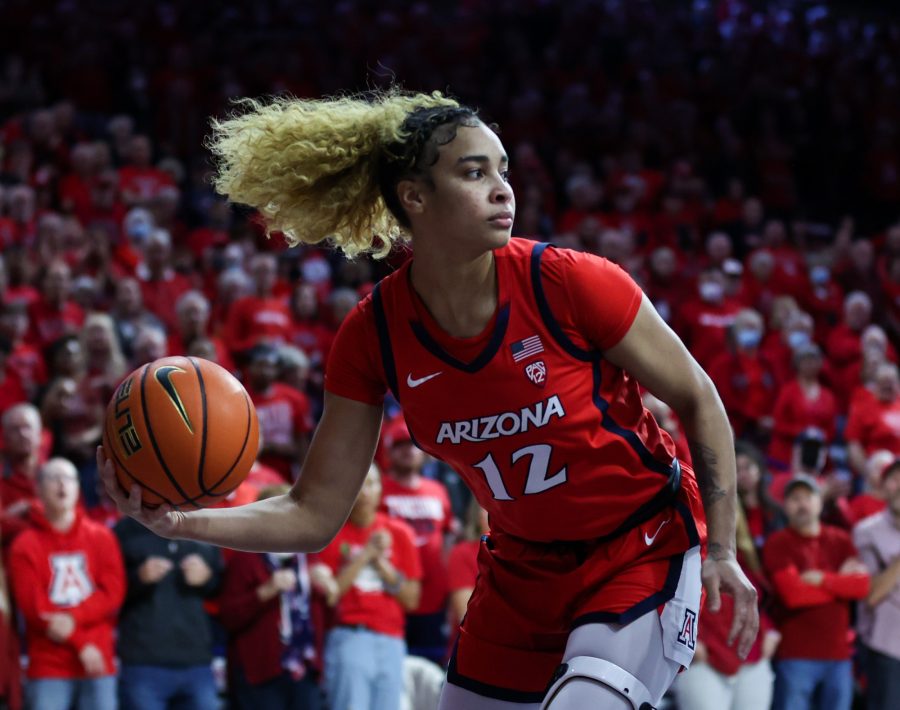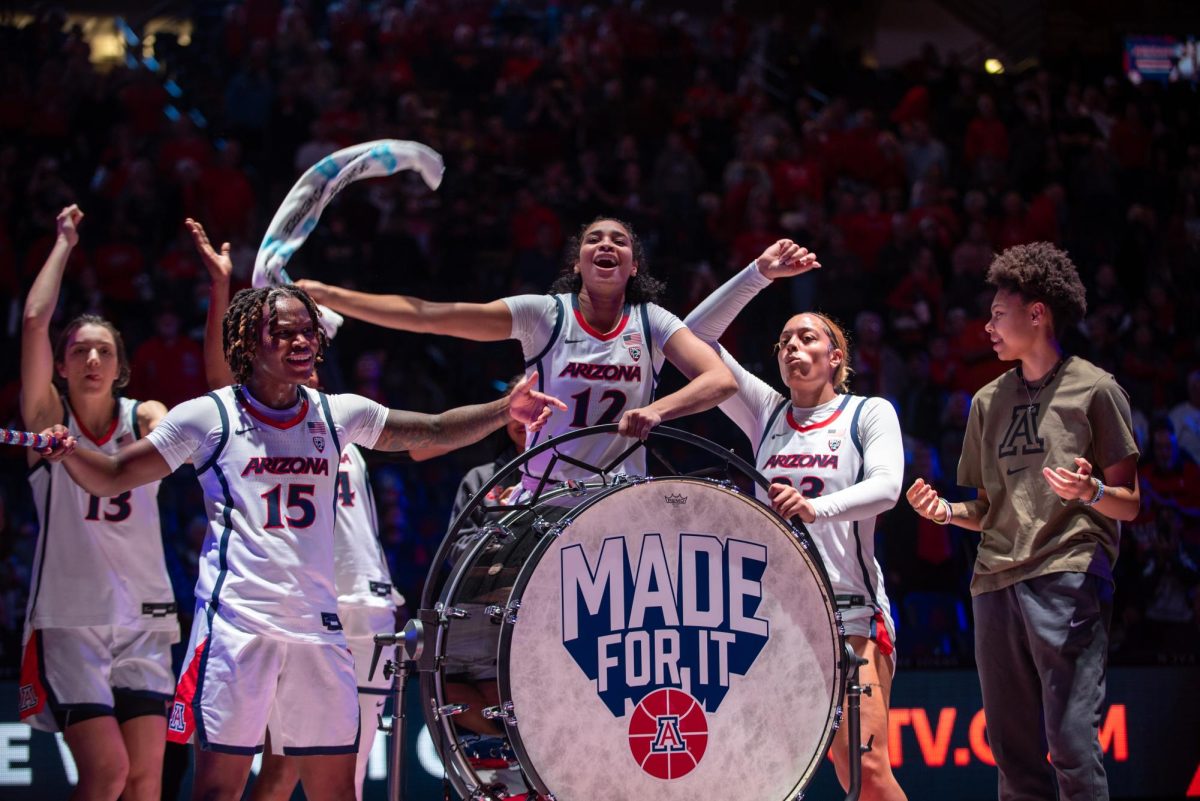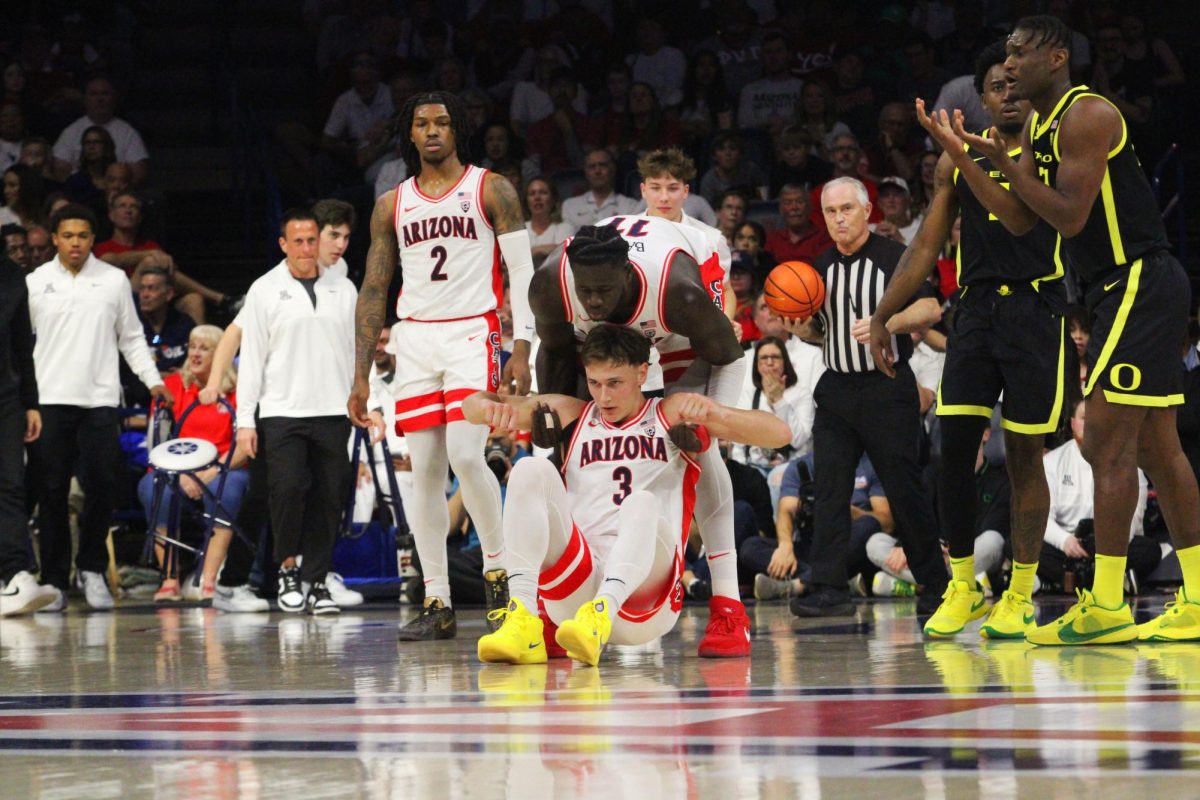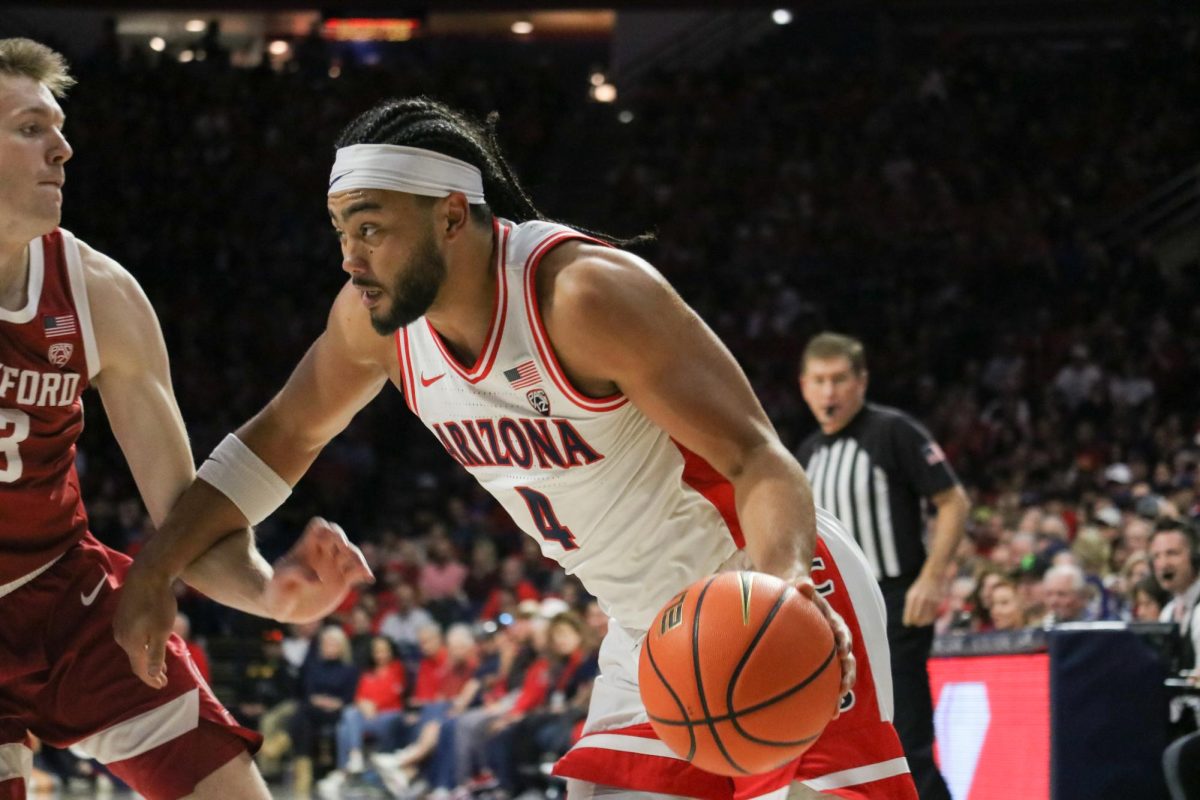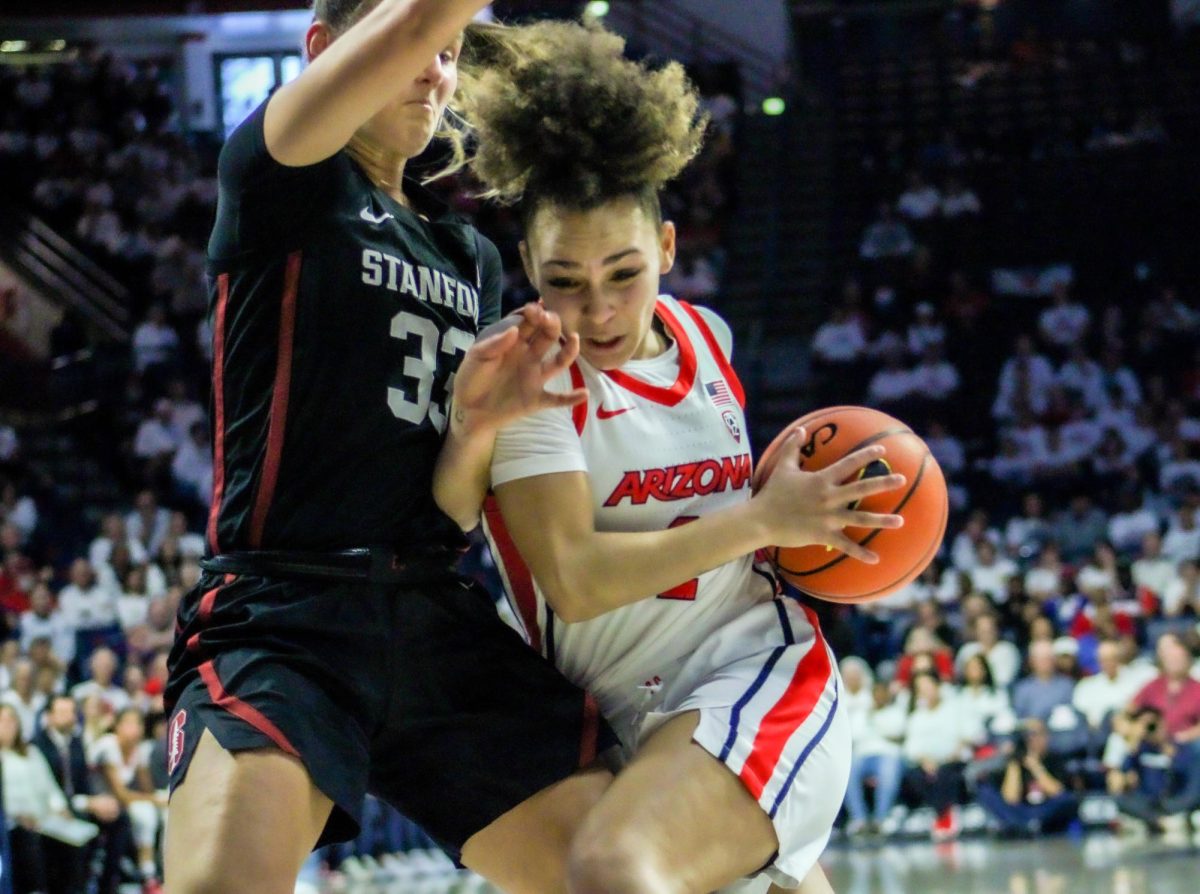Despite the fact that the first Pacific 10 Conference victory for the UA women’s basketball team did not occur until the end of January, last Thursday’s 65-51 victory over Washington was a formidable benchmark in the “”Niya Butts”” era.
Countless issues have plagued the team (8-12, 1-8 Pac-10) all season long, ranging from their lack of offense to lack of depth. Fortunately for the Wildcats, none of those weaknesses made the trip to Bank of America Arena in Seattle.
Whether or not the victory was a mirage or a sign of things to come remains to be seen, but there were two occurrences that stood out as keys to the victory.
Offensive support for Ibekwe
At this point in the season, it is no longer a secret: sophomore forward Ify Ibekwe is a force to be reckoned with. The conference’s leading rebounder and second-leading scorer is making a name for herself both in Tucson and around the Pac-10. While her successes have been remarkable, it all-too-often seems that she is the only true threat on the team.
Ibekwe’s 15.8 points per game is more than four points higher than freshman guard Reiko Thomas’ 11.7, and they are the only two players averaging double figures for the Wildcats.
Senior forward Amina Njonkou, a captain and the player most expected to star this year, is averaging a somewhat disappointing 9.7 points per game and – despite the prowess she displayed in previous years – is only fourth on the team, with 119 shots per game.
While the lack of production can be attributed to opposing defenses keying on her, there is no denying that the lack of offense is, at the very least, perplexing.
None of that mattered against Washington, though.
On a night that Ibekwe was negated by an aggressive Huskies defense, Njonkou shot 60 percent from the floor en route to a game-high 16 points. In addition to that, she grabbed a game-high 16 rebounds.
Her effort, to say the least, was a relief.
“”Amina had a very big game for us,”” head coach Niya Butts said after the win against the Huskies. “”She snapped out of whatever she was in and helped us win today.””
Lineup changes lead to spark off the bench
While the Wildcats have trotted out a starting lineup that could stand toe-to-toe with just about every other team in the Pac-10 conference, there was a growing sense around the league that the lack of production from the backup players is what ultimately doomed Arizona, day in and day out.
“”They have some great players, but they have no depth,”” USC head coach Mark Trakh said after his team defeated the UA 77-71 in overtime on Jan. 17.
Trakh and his Trojans saw first-hand just how barren the bench was in that game, as they were able to erase two double-digit deficits over the course of the game.
In an effort to combat this theory, Butts shuffled the Wildcats’ starting lineup for the game against Washington.
Senior forward Sarah Hays and sophomore guard Faihza Hill got the start for Arizona, flanking regular starters Ibekwe, Njonkou, and junior point guard Ashley Frazier. The adjustment gave the Wildcats a three-forwards look and also gave them the luxury of bringing Thomas and Courtney Clements – two of the team’s most productive offensive players – off the bench.
The move obviously worked.
Hill contributed 11 points, including three 3-pointers, and the Wildcats had six players log over 20 minutes of playing time.
The constant rotation kept players’ legs fresh and, for the first time all season, enabled the team to maintain their lead down the stretch.
“”It feels really good because it was a team win,”” Njonkou said. “”It wasn’t just one team doing it, it was the whole team. You could feel it in the locker room. We were all ready to go.””



